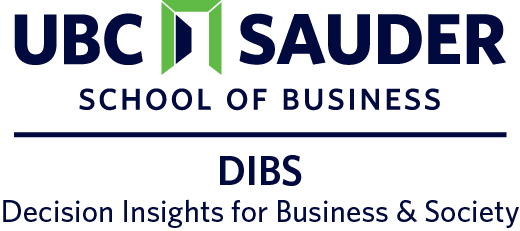The Society for Judgment & Decision Making (SJDM) and European Association for Decision Making (EADM) are pleased to announce their 3rd joint virtual symposium. The goal of the joint SJDM and EADM symposia is to strengthen ties between the two communities.
The symposium will take place on October 24th, 2024, from 7am to 9am PDT (e.g. Los Angeles), which is 9-11am CDT (e.g. Chicago), 10am-noon EDT/EST (e.g. NYC), 3-5pm BST (e.g. London), 4-6pm CEST (e.g. Berlin), and 5-7pm IDT (e.g. Tel Aviv).
The Registration link is:
https://events.teams.microsoft.com/event/47e635ee-165c-462c-9bd4-1847edf54bf8@c9ef029c-18cf-4016-86d3-93cf8e94ff94
Note. Upon registration, you will receive an electronic calendar invitation with the link to access the live event.
The general topic of this symposium is “Relevant decisions: Issues and Challenges for Studying Everyday Choices”
The schedule is as follows (in CDT, e.g. Chicago):
09:00 to 09:05 am – Introductions
09:05 to 09:25 am – Nathan Cheek (Assortment Size and the Meaning of Everyday Choices)
09:25 to 09:30 am – Q&A
09:30 to 09:50 am – Ania Jaroszewicz (How Effective Is (More) Money? Randomizing Unconditional Cash Transfer Amounts in the US)
09:50 to 09:55 am – Q&A
09:55 to 10:10 am – Breakout rooms with networking and discussion
10:10 to 10:40 am – Lukasz Walasek (Incommensurability and Structure of Everyday Choices)
10:40 to 11:00 am – Q&A and general discussion
The abstracts for the talks:
Assortment Size and the Meaning of Everyday Choices
Nathan Cheek
University of Maryland
Abstract: In this talk, I suggest that having more options does more than add an increased cognitive burden—it may change the meaning of choice itself. Participants in a series of preregistered studies (N = 2,542) reported feeling that their choices reflected their identity more after choosing from larger assortments, regardless of whether having more options objectively afforded a better opportunity to satisfy their preferences. Moreover, participants choosing from larger assortments reported maximizing more to the extent that they saw their choices as more self-expressive, which then predicted participants’ reports of overload. A cross-cultural study including data from six countries (China, Japan, Russia, India, Brazil, the U.S.; n = 7436) showed that people in the U.S. experience more negative consequences from abundant choice than do people from societies where choices are less inherently connected to choosers’ personal identities (e.g., China), a pattern consistent with the possibility that self-expression concerns partially explain choice overload. Taken together, these results show how assortment size can shape the meaning of everyday choices, potentially overwhelming consumers by amplifying the importance of ostensibly trivial decisions.
How Effective Is (More) Money? Randomizing Unconditional Cash Transfer Amounts in the US
Ania Jaroszewicz
UC San Diego
Abstract: We randomized 5,243 Americans in poverty to receive $2,000, $500, or nothing, then measured the effects of the windfall on participants’ financial well-being, psychological well-being, cognitive capacity, and physical health one week, six weeks, and 15 weeks later. While bank data show that both cash payments increased expenditures, we find no evidence that (more) cash had positive impacts on our pre-specified survey outcomes, in contrast to experts’ and laypeople’s incentivized predictions. We test several explanations for these unexpected results. The data are most consistent with the notion that receiving some but not enough money made participants’ (unmet) needs more salient, which caused distress. We develop a model to illustrate how receiving cash can sometimes also highlight its absence.
Incommensurability and Structure of Everyday Choices
Lukasz Walasek
University of Warwick
People’s judgments and choices are highly sensitive to context. These context effects challenge many formal models of decision behaviour. Much of this difficulty arises because many decision models presuppose a common currency of value, such as utility or happiness. Yet, this assumption of commensurability does not align with our intuitions about the nature of everyday choices, where people often struggle to make decisions amid conflicting goals and across varying contexts. We propose that everyday choices, as well as many simplified decisions studied in the lab, often involve multiple incommensurable covering values. These covering values cannot be traded off because they do not represent a single universal metric of value. If we abandon the assumption of commensurability, inconsistencies in choices across contexts become unsurprising, as they reflect decision-makers’ goals, motivations, and even current states. In this talk, I will discuss the consequences of abandoning the commensurability assumption for the study of judgment and decision-making. Drawing on recent models, experiments, and methodological innovations, I will demonstrate that embracing incommensurability need not hinder the formal and rigorous study of decision-making.
We look forward to welcoming you to this event!
SJDM/EADM organizing committee (Gaelle Vallee-Tourangeau, Sudeep Bhatia, Dan Bartels, and Elena Reutskaja)
